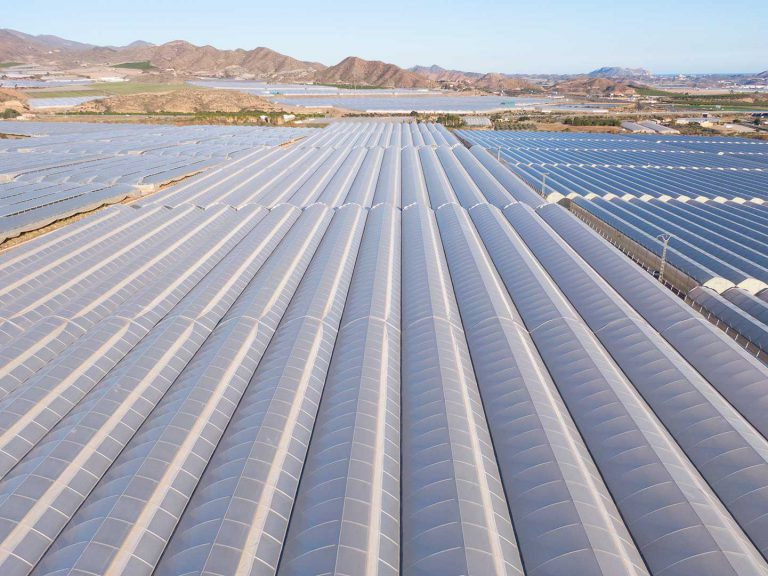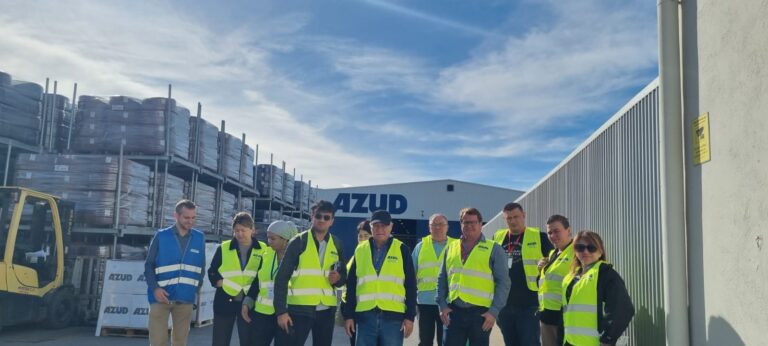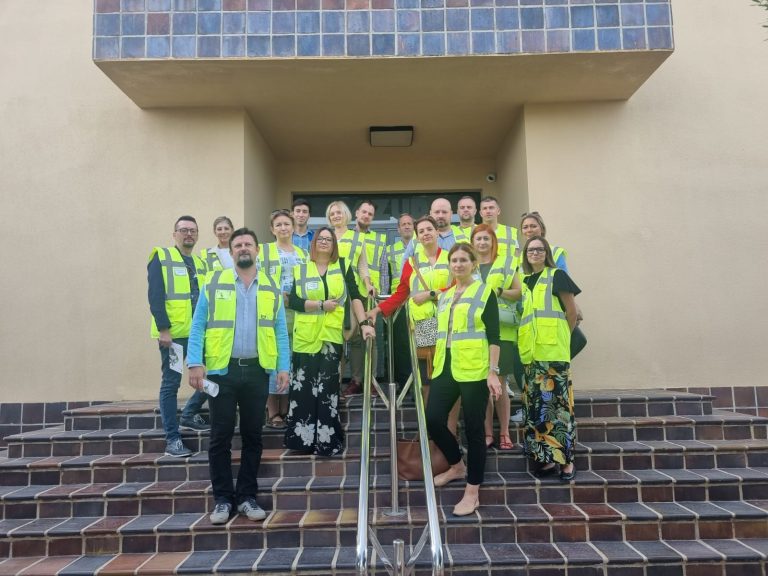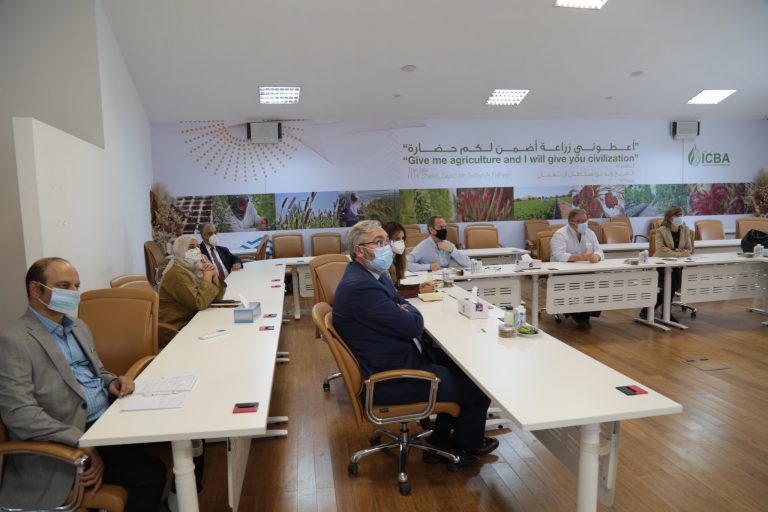The Murcian companies Agrozymes, LucasBiotech, Microgaia or Novagric, from the AgritechMurcia ecosystem, have put in value in international markets and fairs, such as Fruit Attraction, that innovation is adapted to the requirements of EU legal regulations and gives them a plus of interest for large global producers, whether agricultural companies or countries.
The SMEs and research centers of the AgritechMurcia business ecosystem have demonstrated in various international forums the quality of their biotechnological solutions to achieve a more efficient and sustainable agricultural production, respecting the highest standards of food safety required by the European Union.
These companies from Murcia, such as Agrozymes, LucasBiotech, Microgaia or Novagric, have highlighted that the innovation they provide is adapted to the requirements of the EU legal regulations and gives them a plus of interest for large global producers, whether agricultural companies or countries.
As Javier Lucas, manager of LucasBiotech, explains, agriculture today cannot be understood without biotechnology to produce safer and better food.
It makes the difference with respect to the care of the diversity of the soils of each territory, the use of precision irrigation, intelligent greenhouses, pest control with microorganisms, plant disease analysis by PCR, biostimulators or biofertilizers… All these are some of the world-class advances that open the doors with their R+D+i applied to the latest technology for the agricultural sector.
Companies at the forefront: demanding legal regulations, consumers and producers
In the highly competitive and conservative world of agriculture, companies from Murcia are demonstrating that their advances for 21st century agriculture favor greater land yields, better conservation of fertile soil and greater productivity that meets the demands of consumers who are very attentive to environmentally friendly products.
Juan Pardo Martínez, R&D Director at Novagric, is clear: “Farmers are using biotechnology, on the one hand, because of climate change, high temperatures and scarcity of water resources, and on the other hand, because of the pressure of climate change, high temperatures and scarcity of water resources. And on the other hand, because of a significant regulatory pressure at the European level, which we see will be a global demand and a social demand, received by producers via customers”.
Food Safety
AgritechMurcia’s cutting-edge technology provides an essential element in the face of increasingly complex European regulations, which, although they are very strict, end up being imposed worldwide due to the food safety they provide.
For Cristóbal Sánchez, CEO of Microgaia, “the future is focused on development towards soil sustainability, environmental protection, improvements in people’s health, improvements in the health of field workers and handlers. And with respect to increasing quality, all companies that work well are at a very similar level, so now competitiveness has to go in other directions and one of these ways is to take into account all the socio-environmental factors”.
Carlos Mirabet, founding partner and commercial director of Agrozymes, explains that “we are seeing how in Latin American countries, especially in Chile, Colombia, Ecuador and Venezuela, national legislation is changing. They are making a copy and paste of European regulations”.
Success stories
The AgritechMurcia agricultural technology business platform, made up of 23 companies and research and training centers, and backed by the Government of the Region of Murcia, is a clear exponent of the exponential leap in agricultural biotechnology that other countries are calling for in order to buy their products, learn their techniques and even train their most advanced producers.
Four success stories are already mentioned: LucasBiotech, Novagric, Microgaia or Agrozymes, among the twenty that make up this solid business ecosystem.
LucasBiotech is a company specialized in biofertilizers and biostimulants whose objectives include promoting the microbiota of each soil because they understand that the most adapted and evolved microbiota is the one native to each soil. Their biotechnology favors production and results in the agri-food sector. They work with water optimizers. Their products confer greater bioavailability to the nutrients provided, obtaining greater productivity and efficiency, with an organo-mineral biofertilizer solution suitable for any irrigation and cultivation system.
Microgaia is dedicated to agricultural biotechnology and microbiology that provide integral solutions for the soil and the plant, avoiding pests, detecting them in real time, and improving soil and production. They have been developing applications based on the latest PCR, phytodiagnostics, microarrays, sequencing and genetic technologies for more than 10 years.
Agrozymes is a biofertilizer and biostimulant company. The aim of the products is to increase the sustainability of the ecosystems surrounding crops by offering compatible natural solutions with low environmental impact. They have 20 years of experience in the sector dedicated to the manufacture and marketing of organic products based on microorganisms and natural extracts for application in organic agriculture.
Novagric develops projects for greenhouses and irrigation of woody crops, vegetables, seedbeds, vertical and organic farming, ornamentals, vegetables, etc. to achieve maximum crop yields while optimizing available resources.
Managers analyze the sector
Javier Lucas, manager of LucasBiotech, assures that, adapted to EU regulations: “it can be said that Europe is the production area with the most restrictions in the world, to the extent that others are not so rigorous, for example, in the field of crop control and protection against pests and diseases. Competitively, this generates a reduction of our productive potential, since pests or diseases from other areas are being imported to Europe. They affect us in a very serious way. First, because they are new pests that are already here. Secondly, because we have fewer tools than the countries of origin against these pests. This, in turn, generates the opportunity to introduce tools in the area of biofertilizers or pest and disease control that technology can develop. It is interesting, but it can generate certain limitations”.
Javier Lucas, also wants to remember that “we are working on a very advanced line such as precision agriculture. Different related technologies are combined, as well as by obtaining data through sensors, analysis of results, big data, even the application of artificial intelligence. Also, image analysis, sensorization. On the other hand, we have been developing technology for several years by which we generate fertilizers or biostimulants that generate a positive impact on the environment.”
According to Cristóbal Sánchez, CEO of Microgaia, “agriculture is usually quite conservative. However, in the last 15 years the entire eastern part of Andalusia, the entire Region of Murcia, the entire Region of Valencia, have already routinely implemented techniques that include pesticide reduction and increased use of living organisms that compete as predators of pests and diseases. In the greenhouse, pests are fairly well controlled. Diseases are another thing.
He adds, “Since 2016 we have been working on plant pathology techniques based on real-time PCR for detection:
1.- We are able to detect races within the same species of fungus attacking a given plant.
Concentrations of very small amounts of microorganism are detected based on the extraction of DNA from the entire sample of the problem and we specifically look for a part of DNA that unequivocally identifies that species of microorganism.
3.- It is a very sensitive technique and it is also very fast. If the sample enters the laboratory at 9 o’clock in the morning or at 2 o’clock in the afternoon, the result is already available”.
Carlos Mirabet, founding partner and commercial director of Agrozymes, tells his experience: “There is a lack of information, logically, but biotechnology is focused on better feeding and production of maximum profitability. We have been in the market for 11 years. Two years ago we had, for example, a case of a mandarin farm in Molina de Segura, which had a problem with Alternaria, the “brown spot” caused by a fungus that prevented them from obtaining a regular harvest to such an extent that they could only produce 200,000 kilos of mandarin in all the plots and with a rather average or low quality. We studied the case and set up a weather station, analyzed the climatic conditions throughout the year and chose a combined strategy. We carried out a series of applications directed to the soil. The result: this year the same plot is expected to harvest almost 800,000 kilos of very high quality. The cost has been around 300 euros per hectare. These are very good tools. Now we are doing trials on broccoli with Alternaria problems, or sclerotinia in lettuce”.
Juan Pardo Martínez, R&D Director of Novagric, refers to a line of action of great interest: “We have presented a project that we are developing within the Horizon framework of the European Union. The idea of the project is to use pollinators, such as bumblebees, to carry out a phenotypic selection of plants and use us as a selection tool. Focusing on tomato, what better than insects and their preferences with flowers as a way of phenotypic selection of new varieties. Moreover, in the context of climate change, it is a solution”. And he adds: “it is necessary to develop everything that is greenhouse agriculture, because possibly there are certain crops that now can be developed outdoors, and that become viable only in greenhouses. And conversely, there is an opportunity for tropical species that could not be grown in our environment before and are beginning to be considered. It is also a business aspect and new opportunities”.
In conclusion, the leadership in the development of biotechnology techniques generated by companies and research centers positions AgritechMurcia as an international reference in sustainable agricultural production.
On the other hand, this business ecosystem in a regulatory framework as restrictive as the European one, which, in turn, demands the highest levels of quality for consumers, requires: total food safety, efficiency to achieve better prices and respect for the environment.
Murcian companies are in an advanced position in all this, as shown by the exports to hundreds of countries of technology, infrastructures, products, advice and training.








